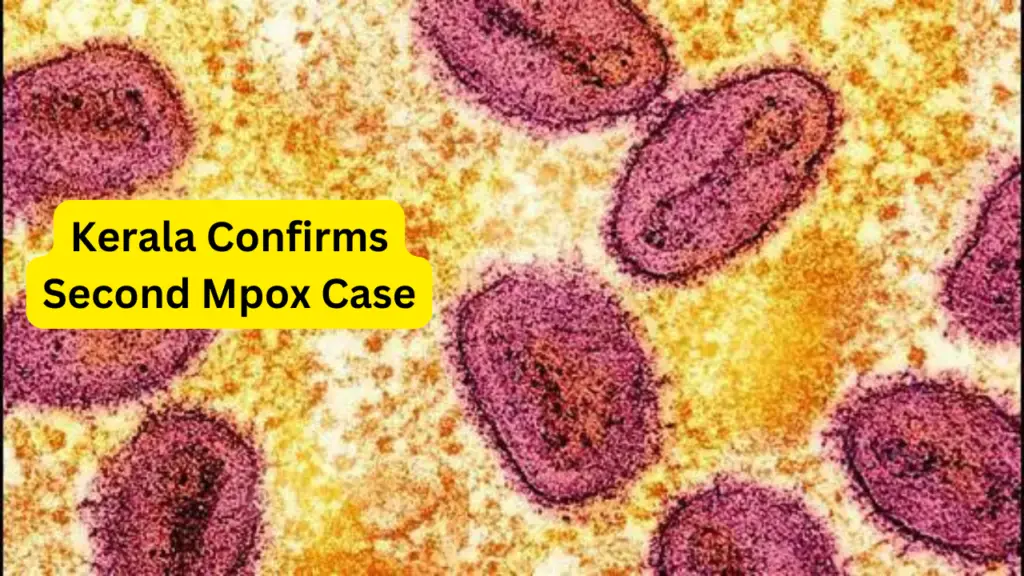
Kerala Confirms Second Mpox Case
Kerala, India, has reported its second confirmed Mpox (formerly known as Monkeypox) case, sparking concerns among health authorities and the general public. The patient, a man who had recently returned from the United Arab Emirates (UAE), has been admitted to a hospital in Kochi. This new case adds to the ongoing challenges that Kerala faces in managing public health, particularly with the rise of global infections and returning travelers carrying infectious diseases.
The state government has ramped up its surveillance efforts, while the health department closely monitors individuals who have come into contact with the patient. As Mpox spreads globally, this case underscores the importance of stringent health protocols, timely diagnosis, and effective management to prevent further outbreaks. Kerala Confirms Second Mpox Case
Details of the Second Mpox Case in Kerala
The latest Mpox case involves a 34-year-old male who arrived in Kerala from the UAE. Upon his arrival, the individual began exhibiting symptoms associated with Mpox, including fever, body aches, and the characteristic skin lesions. Upon visiting a hospital in Kochi, he was immediately isolated, and his samples were sent for testing.
The National Institute of Virology (NIV) in Pune confirmed the diagnosis, making this the second case in the state within a short span of time. This comes after Kerala reported its first Mpox case earlier in the year, involving another individual who had traveled internationally.
While the health department has not yet declared a widespread public health emergency, authorities have heightened screening at airports and seaports, particularly focusing on travelers arriving from countries where Mpox is prevalent. The patient in question is currently under strict observation, and his condition is said to be stable.
Mpox in India: A Growing Health Concern
Mpox, a viral infection caused by the Monkeypox virus, has emerged as a significant global health concern. The virus is part of the same family as the smallpox virus, though it generally causes less severe symptoms. Mpox can spread through close contact with an infected individual, contaminated surfaces, or animals. Symptoms typically include fever, swollen lymph nodes, muscle pain, and a rash or lesions on the skin, which may appear on the face, palms, soles, and other parts of the body.
In India, Mpox cases have been rare, but the detection of these cases in Kerala has heightened awareness of the virus and its potential to spread. The current situation has prompted the Indian government to issue guidelines for Mpox management and create a framework for the containment of the virus if further cases emerge.
Steps Taken by Kerala Health Authorities
Kerala’s health department has acted swiftly following the confirmation of the second Mpox case. Measures to prevent further transmission have been put into place, including:
- Enhanced Screening Procedures: Kerala has increased its surveillance at all points of entry, including airports and seaports. Travelers arriving from countries with Mpox outbreaks are being closely monitored.
- Isolation Protocols: The patient, like the first case, has been isolated in a dedicated medical facility to prevent contact with the general public. Those who have had direct or indirect contact with the patient are also being traced and placed under observation.
- Public Awareness Campaigns: Health officials are conducting campaigns to educate the public on the symptoms of Mpox, transmission methods, and the importance of seeking medical attention if symptoms arise.
- Healthcare Provider Training: Medical staff across the state have been trained to identify potential Mpox cases, conduct testing, and provide treatment in accordance with international guidelines.
These proactive measures, combined with Kerala’s history of effective management during public health crises like the Nipah virus outbreak and COVID-19, have given authorities confidence in their ability to contain this latest health threat.
Mpox Symptoms and Transmission
Mpox is characterized by symptoms similar to smallpox, though generally milder. It typically begins with flu-like symptoms such as:
- Fever
- Headache
- Muscle aches
- Swollen lymph nodes
- Exhaustion
Within a few days of the onset of these symptoms, a rash develops, often starting on the face before spreading to other parts of the body. The rash then progresses to lesions, which eventually scab over and fall off. The illness can last for several weeks, and in some cases, complications such as secondary infections or respiratory distress may arise.
Mpox is transmitted primarily through close physical contact with an infected person. The virus can also spread via contaminated surfaces or materials such as bedding or towels. Direct contact with bodily fluids or respiratory droplets during prolonged face-to-face interaction can further facilitate transmission.
Given the nature of Mpox transmission, health authorities emphasize the need for strict hygiene practices and caution in areas where cases have been reported.
Global Mpox Outbreaks: A Cause for Concern
Globally, Mpox outbreaks have been reported across several continents, including Europe, North America, and Africa. These outbreaks have occurred primarily in regions that do not typically see Mpox cases, leading to increased concern among global health organizations such as the World Health Organization (WHO) and the Centers for Disease Control and Prevention (CDC).
The WHO has urged countries to increase testing, contact tracing, and public education about the virus. While vaccines exist that can protect against Mpox, such as the smallpox vaccine, their availability remains limited, particularly in developing nations. Efforts to boost vaccine production and distribution are ongoing, especially in countries where the virus has begun to spread rapidly.
Kerala’s Robust Healthcare System: A Model for Others?
Kerala’s healthcare infrastructure has long been lauded for its effectiveness in managing outbreaks. From the Nipah virus outbreak in 2018 to its internationally recognized handling of COVID-19, Kerala has proven itself capable of responding swiftly to public health emergencies.
The state has a well-established public health network, with access to advanced medical facilities, research institutes, and a trained workforce. In the case of Mpox, Kerala’s experience in tracking infectious diseases, combined with its comprehensive surveillance and containment measures, has provided a sense of reassurance to the general population.
However, the challenges posed by Mpox are different from past outbreaks, as it requires rapid detection, isolation, and global coordination, given the frequent international travel that increases the risk of spreading the virus across borders.
The Path Forward: Preventing the Spread of Mpox
With two Mpox cases now confirmed in Kerala, it is imperative that both local and national authorities continue their efforts to prevent further transmission. Public health guidelines suggest the following steps for reducing the risk of Mpox infection:
- Avoid Close Contact with Infected Individuals: Direct physical contact, including touching skin lesions, should be avoided.
- Practice Good Hygiene: Wash hands frequently with soap and water, especially after contact with suspected Mpox patients or contaminated materials.
- Follow Travel Advisories: Keep up-to-date with travel guidelines issued by health authorities, particularly if traveling to or from regions experiencing Mpox outbreaks.
- Seek Medical Attention Promptly: Individuals experiencing symptoms, particularly those who have traveled from countries with known outbreaks, should seek medical care immediately for diagnosis and isolation.
Conclusion: A Contained Situation, But Vigilance is Key
The emergence of a second Mpox case in Kerala is concerning but not yet indicative of a widespread outbreak. With Kerala’s strong healthcare response and the public’s adherence to preventive measures, the situation remains under control for now.
That said, the global nature of Mpox requires constant vigilance. As travel restrictions ease and international borders reopen, countries around the world, including India, must be prepared for potential new cases and outbreaks. Kerala has shown resilience in the past, and with its advanced healthcare system, it is well-positioned to manage the situation effectively.



